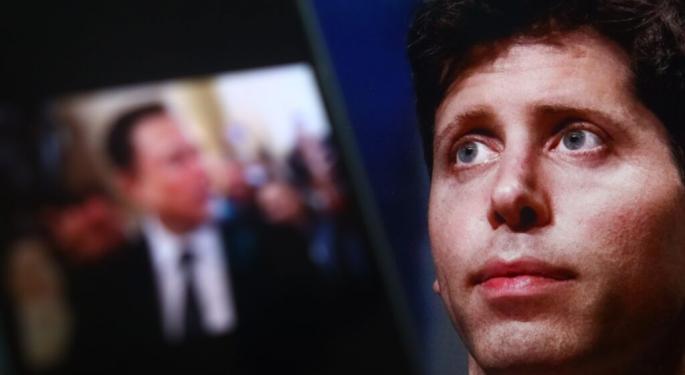Sam Altman Warns ChatGPT Conversations Aren't Protected Like Talking With Your Psychologist Or Lawyer: 'We Could Be Required To Produce That' In Court
OpenAI CEO Sam Altman has raised concerns over the lack of legal confidentiality surrounding ChatGPT conversations, warning users that sensitive chats could be subject to court subpoenas.
What Happened: In his appearance on the podcast with Theo Von last week, Altman addressed the growing use of AI tools like ChatGPT for deeply personal matters, particularly among younger users.
He said that while people commonly use ChatGPT as a therapist, life coach or confidant, the platform does not currently offer the same legal protections as a doctor, lawyer, or licensed mental health professional.
"People talk about the most personal s**t in their lives to ChatGPT," Altman said. "And right now, if you talk to a therapist or a lawyer or a doctor about those problems, there’s legal privilege… We haven't figured that out yet for when you talk to ChatGPT."
He warned that without legal protections, OpenAI could be compelled to hand over user conversations in legal proceedings.
"If you go talk to ChatGPT about your most sensitive stuff and then there's a lawsuit or whatever, we could be required to produce that," Altman said. "I think that's very s****ed up."
Altman said the issue is pressing and called on policymakers to act quickly. "I think we need this point addressed with some urgency," he added. "The policymakers I've talked to about it broadly agree — it's new and now we've got to do it quickly."
Subscribe to the Benzinga Tech Trends newsletter to get all the latest tech developments delivered to your inbox.
Why It's Important: Altman's comments underscore a broader regulatory gap in AI policy as millions of users turn to generative tools for mental health, legal and relationship advice.
His remarks add to the growing debate about AI governance and user rights in the digital age.
In February earlier this year, at the AI Action Summit in Paris, the U.S. and U.K. chose not to sign a global AI safety declaration backed by around 60 countries, including China, India and Germany.
At the time, U.S. Vice President JD Vance criticized the agreement as overly cautious, warning that excessive regulation could hinder AI innovation.
Last week, Chinese Premier Li Qiang called for the creation of a global organization to foster international cooperation on AI.
Check out more of Benzinga’s Consumer Tech coverage by following this link.
Read next:
Photo Courtesy: Shutterstock/Photo Agency
Disclaimer: This content was partially produced with the help of AI tools and was reviewed and published by Benzinga editors.
© 2025 Benzinga.com. Benzinga does not provide investment advice. All rights reserved.
Posted-In: News



